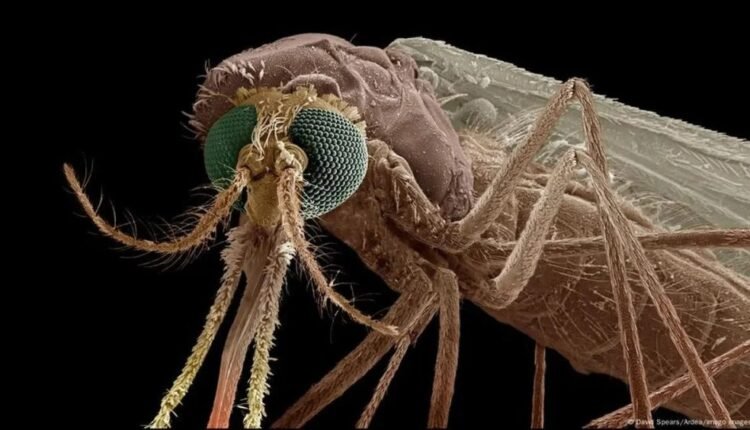Study Finds Nitisinone Could Revolutionize Malaria Control by Killing Mosquitoes Through Human Blood
Repurposed drug blocks key mosquito enzyme, proving effective even against resistant strains.
ISLAMABAD A groundbreaking study has revealed that nitisinone, a medicine firstly developed to treat rare inheritable diseases, can fatally disrupt a mosquito’s digestive process after it feeds on mortal blood containing the substance. Research from the University of Notre Dame, reported by Science Alert, highlights how the medicine blocks a pivotal enzyme in mosquitoes known as 4- hydroxyphenylpyruvate dioxygenase( HPPD). Without this enzyme, mosquitoes can not duly digest blood refections, eventually leading to their death.
Also Read: Study Abroad on a Budget with Partial Scholarship
The discovery is especially significant because nitisinone has proven effective against germicide- resistant mosquito strains, including the Tiassalé variant of Anopheles gambiae, one of the main carriers of malaria. This makes the medicine a important addition to being vector control styles, which have been losing effectiveness in recent times.
Unlike traditional approaches, nitisinone works snappily, killing mosquitoes within just 24 hours of ingestion. It also remains active in the bloodstream for extended ages, meaning it can offer lasting protection. The medicine impacts mosquitoes of all periods, including aged bones
that are more likely to spread malaria, which sets it piecemeal from numerous other control strategies.
By effectively turning mortal blood into a mosquito- killing medium, nitisinone presents a unique and innovative way to reduce mosquito populations. Its capability to exclude both germicide-susceptible and resistant strains makes it especially precious in regions where conventional interventions are floundering to keep pace.
Lee R. Haines, associate exploration professor at the University of Notre Dame, described the medicine as a promising new reciprocal tool in the fight against nonentity- borne conditions. He emphasized its eventuality to cover vulnerable communities, particularly in areas where malaria remains a major public health trouble.
With malaria still causing hundreds of thousands of deaths each time, especially across Asia and Africa, experimenters believe that this discovery could gesture a turning point in global sweats to combat the complaint. By repurposing an being medicine with proven medical operations, scientists have uncovered a new pathway to weaken the world’s deadliest mosquito species and bring stopgap to regions most affected by malaria.


Comments are closed, but trackbacks and pingbacks are open.